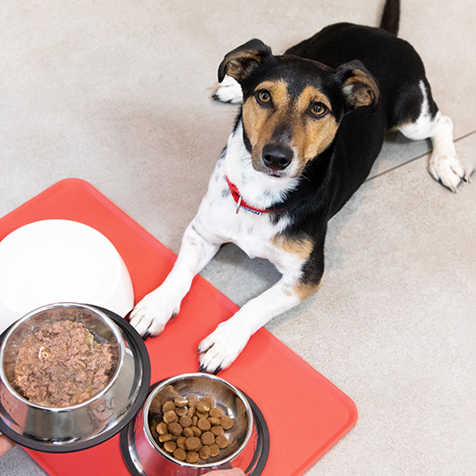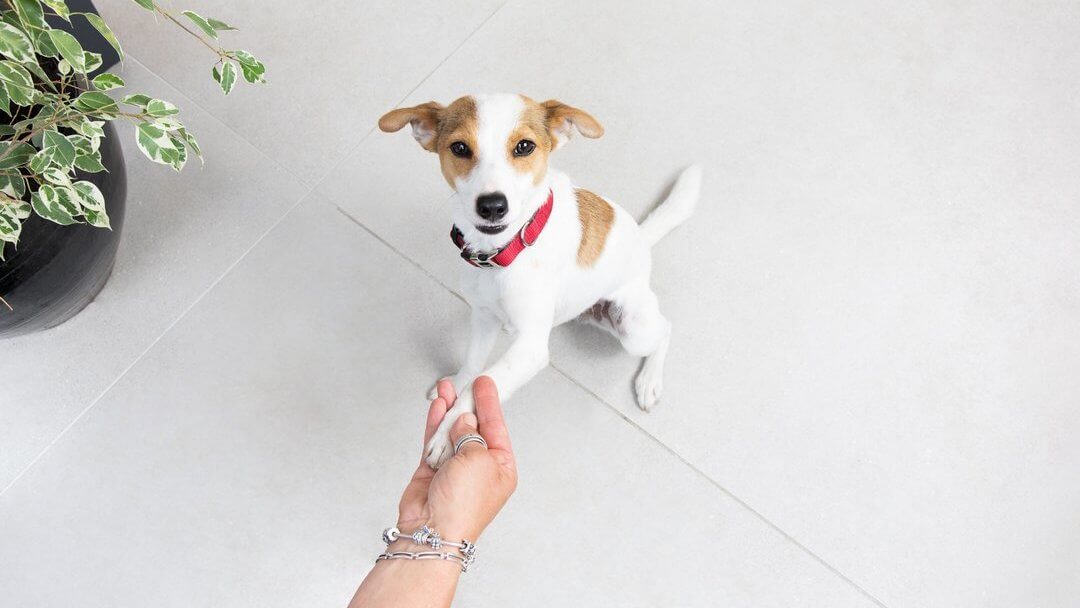
Even though some dogs will make more noise than others, all dogs bark. Whether you have a tiny Chihuahua or a fully-grown Alsatian, you’ve probably heard them barking in a wide variety of situations.
You might even be able to tell why they’re barking – for example, many dogs will bark if they encounter something that they perceive as threatening or even when they just want to say hello!
At other times you might not know why your dog is barking, so attempting to work out what they’re trying to communicate to you will help you understand your dog better.
Why do dogs bark?
Whatever causes your dog to bark, it has one purpose: to communicate what they are feeling. For example, if they are barking at a stranger, they might be trying to warn that person to stay away, or to alert you, their owner, to the stranger’s presence. If your dog is bored, their barking is probably designed to get your attention and they might just want to play with you!
Occasionally a dog might bark excessively, which can be annoying if it continues for a long period of time. If you find your dog barking excessively, the best thing to do is to try and identify the cause. If the problem can’t be solved by teaching your dog to cope with the stimulus (such as strangers passing by), or you cannot identify the problem, ask your vet for advice. You can also read about preventing excessive barking here.
"Remember that healthy barking is always in response to something, and it shouldn’t last for a long period of time."
Types of barking
Although barking can often sound the same, there are many different types. Each one is your dog trying to tell you something. You can usually work out why your dog is barking by paying attention to their environment or considering what they might need.
Environmental
Many dogs will bark at something in their environment, such as a noisy car going past, the appearance of other animals, or even the weather. A little of this is normal, but you should reassure your dog that there is nothing to be worried about. In many cases this type of barking will be short-lived, but if it becomes a habit, talk to your vet about finding a solution.
There are many ways to support your dog if they are barking because they are scared. Your dog might be barking because they’re afraid of loud noises, such as fireworks or thunder, but you can help ease their anxiety by creating a safe place for them during these times. You might also want to consider calming aids, such as Adaptil, which can help reassure dogs in fearful situations. Adaptil releases a special scent that replicates the pheromone that mother dogs naturally emit to their puppies just after birth, which helps to comfort them when they might be feeling frightened.
Emotional
Dog barking can also be caused by excitement, fear, or boredom. If they bark because they are bored, it’s often their way of asking for attention, so rather than rewarding their behaviour by responding negatively to their barking, make sure they have plenty of stimulation.
It’s completely normal for dogs to bark a little in response to emotion, so unless it is excessive, don’t worry!
Physical
Your dog may bark if they are trying to express a physical need such as thirst. Making sure they have everything they need can prevent this kind of barking. They may also bark if they need to go out for a walk, as barking is a good way for them to spend excess energy, so always make sure they are properly exercised.
A barking dog can be happy, curious, hungry, or any other number of things. By looking for signs in their mood and environment you’ll soon be able to work out what they’re saying – after all, it’s their natural way of communicating with you!











